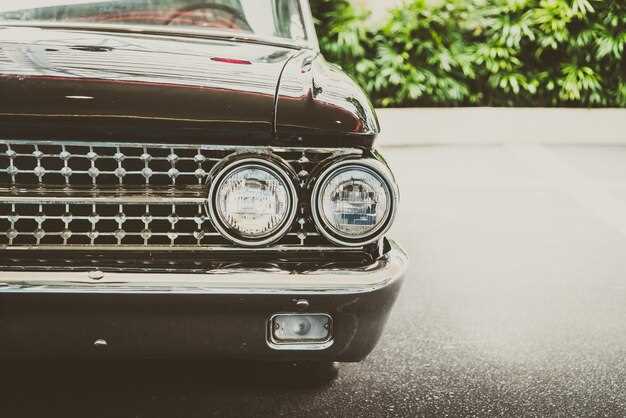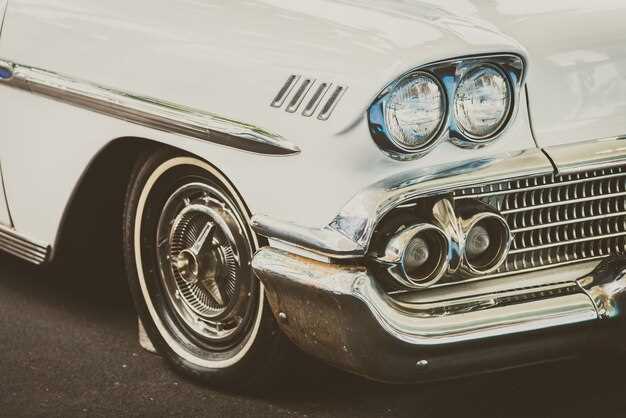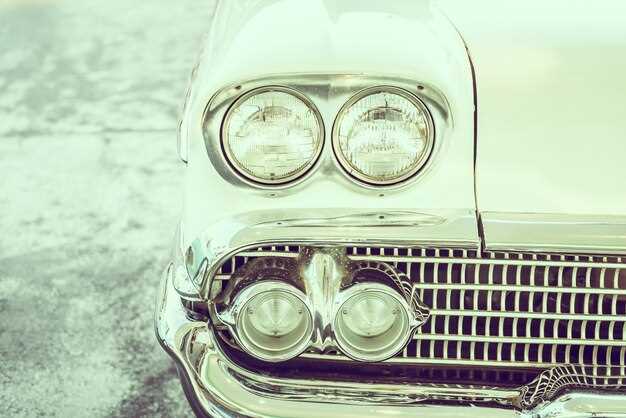
Classic cars have long transcended their primary function as mere transportation, evolving into coveted artifacts that embody artistry, heritage, and exclusivity. Their appeal lies not only in their craftsmanship and design but also in the prestige associated with owning a piece of automotive history. As the luxury market expands, these vintage vehicles play a pivotal role, influencing consumer behavior and shaping market trends.
In recent years, the intersection of classic cars and luxury has become increasingly pronounced. Luxury brands are recognizing the allure of classic cars as symbols of status and wealth, prompting collaborations and events that celebrate this unique connection. The values assigned to these vehicles often reflect broader economic conditions, and their importance is magnified in times of financial uncertainty, where luxury items serve as alternative investments.
The cultural significance of classic cars extends beyond mere aesthetics; they are a testament to engineering innovation and design excellence. As affluent collectors seek to diversify their portfolios, classic cars are being positioned not just as lifestyle choices but as serious financial assets. This shift in perception enhances their status in the luxury market, bridging the gap between enthusiasts and investors.
How Classic Cars Shape Investment Strategies for Luxury Buyers

Classic cars have increasingly become valuable assets in the luxury market, prompting buyers to rethink their investment strategies. Unlike traditional investments like stocks or bonds, classic cars offer tangible value and emotional appeal, making them attractive for high-net-worth individuals seeking both returns and personal enjoyment.
One of the primary ways classic cars influence investment strategies is through their appreciation potential. Over the years, certain models have shown impressive returns, often outpacing conventional investment options. Luxury buyers are now considering these vehicles not just as collectibles, but as viable long-term investments that can diversify their portfolios.
Buyers are particularly drawn to rare and well-preserved models, as their scarcity enhances value. Factors such as brand reputation, historical significance, and condition can significantly affect a car’s market price. Savvy investors conduct thorough research and work with experts to identify vehicles that have the potential for appreciation, ensuring they make informed decisions when expanding their collections.
Investors often explore auction houses and classic car shows to gauge market trends and pinpoint desirable models. These events provide insights into what buyers are currently looking for, allowing luxury investors to adapt their strategies accordingly. By understanding market dynamics and consumer preferences, buyers can optimize their investments to ensure steady growth.
Furthermore, classic cars can serve as a hedge against inflation. Their intrinsic value tends to rise over time, providing a buffer for investors during economic downturns. This quality has led luxury buyers to allocate a portion of their portfolios to classic vehicles, viewing them as an alternative asset class that can withstand market volatility.
Networking within the classic car community is another crucial aspect that shapes investment strategies. By building relationships with fellow collectors, dealers, and auction specialists, buyers gain access to exclusive opportunities and insights that can lead to lucrative investments. This network often proves invaluable for those looking to sell or acquire high-value vehicles in a competitive market.
Finally, the emotional connection associated with classic cars cannot be overlooked. Many luxury buyers enjoy the lifestyle that accompanies ownership, including participation in car rallies and shows. This passion often intertwines with their investment strategies, as buyers seek models that resonate with their personal tastes while also holding their value. In this way, classic cars uniquely blend emotional and financial motivations, making them a compelling addition to any luxury investment strategy.
The Role of Classic Cars in Defining Luxury Brand Identity

Classic cars hold a unique position within the luxury market, significantly influencing brand identity and consumer perception. The allure of these vehicles is deeply rooted in their craftsmanship, heritage, and exclusivity, which are the cornerstones of luxury branding. By incorporating classic models into their lineups or brand narratives, companies can evoke a sense of timelessness and prestige that resonates with affluent consumers.
In addition to craftsmanship, classic cars embody a narrative of innovation and sophistication. Brands that successfully weave the story of a classic model into their identity often enhance their appeal. For example, many luxury car manufacturers reference their historic milestones to establish authenticity, creating a bond with consumers that transcends mere transaction. The emotional connection cultivated through these narratives allows brands to differentiate themselves in a competitive market.
The rarity of classic vehicles adds another layer to luxury brand identity. Limited production runs and unique designs position these cars as collector’s items, elevating their status among luxury enthusiasts. This exclusivity aligns strategically with luxury branding, as consumers often seek products that signify social status and prestige. Through partnerships with classic car restorers or events celebrating automotive heritage, brands can further enhance their luxury appeal and reinforce their commitment to quality and excellence.
Moreover, the influence of classic cars extends beyond the product itself. They serve as a source of inspiration for modern designs, enabling luxury brands to balance innovation with tradition. Integrating retro elements into contemporary models can evoke nostalgia while ensuring relevance in today’s dynamic market. By doing so, luxury brands maintain a continuous link to their legacy, reinforcing their identity through the timeless appeal of classic aesthetics.
In conclusion, classic cars play a pivotal role in defining luxury brand identity by emphasizing craftsmanship, narrating rich histories, capitalizing on rarity, and inspiring modern designs. Their presence not only enhances brand perception but also strengthens consumer loyalty, ensuring that luxury brands remain intertwined with the ideals of enduring elegance and sophistication.
The Influence of Classic Car Auctions on Market Trends and Valuations
Classic car auctions play a pivotal role in shaping market trends and influencing valuations within the luxury automotive sector. These events are not merely sales; they represent a convergence of collectors, investors, and enthusiasts, all of whom contribute to the broader market dynamics. As rare vehicles are presented to a worldwide audience, the bids that these cars attract provide crucial insights into contemporary value perceptions.
The auction process itself establishes a transparent method for determining the worth of classic cars. Bidders assess each vehicle’s provenance, rarity, and condition, which directly affects auction results. High-profile sales, such as those conducted by renowned auction houses, often garner significant media coverage. This publicity can lead to spikes in interest and even valuation trends in the broader market. Consequently, notable sales figures can create benchmarks, influencing how collectors and sellers alike price their vehicles.
In addition, classic car auctions can introduce emerging trends. For instance, if a certain model or brand experiences an unforeseen surge in bidding activity, it may signify a shift in collector interest. As a result, previously overlooked cars can become sought after, thereby altering the overall market landscape. The emergence of electric and hybrid vehicles also reflects evolving consumer preferences, with auction houses beginning to introduce such models, further influencing market valuations.
The global nature of classic car auctions means that valuations can fluctuate dramatically based on geographical factors. Collectors from different regions may have unique preferences influenced by local culture, economic conditions, and regulatory environments. Consequently, an auction in one country can resonate far beyond its borders, affecting valuations worldwide.
The economic backdrop is another significant factor. During times of economic boom, luxury collectibles, including classic cars, typically see increased valuations, as buyers are more willing to invest in high-end acquisitions. Conversely, in times of economic uncertainty, the market may experience corrections, affecting auction results and subsequent valuations. Analyses of past auction results often reveal patterns that correlate with broader economic conditions, providing valuable insights for market participants.
In summary, classic car auctions serve as critical touchpoints for assessing market trends and valuations. Their results have a domino effect on the luxury car market, influencing buyer behavior and shaping perceptions of value. Through careful observation of auction outcomes, stakeholders can gain a nuanced understanding of the ever-evolving landscape of classic car collecting.
